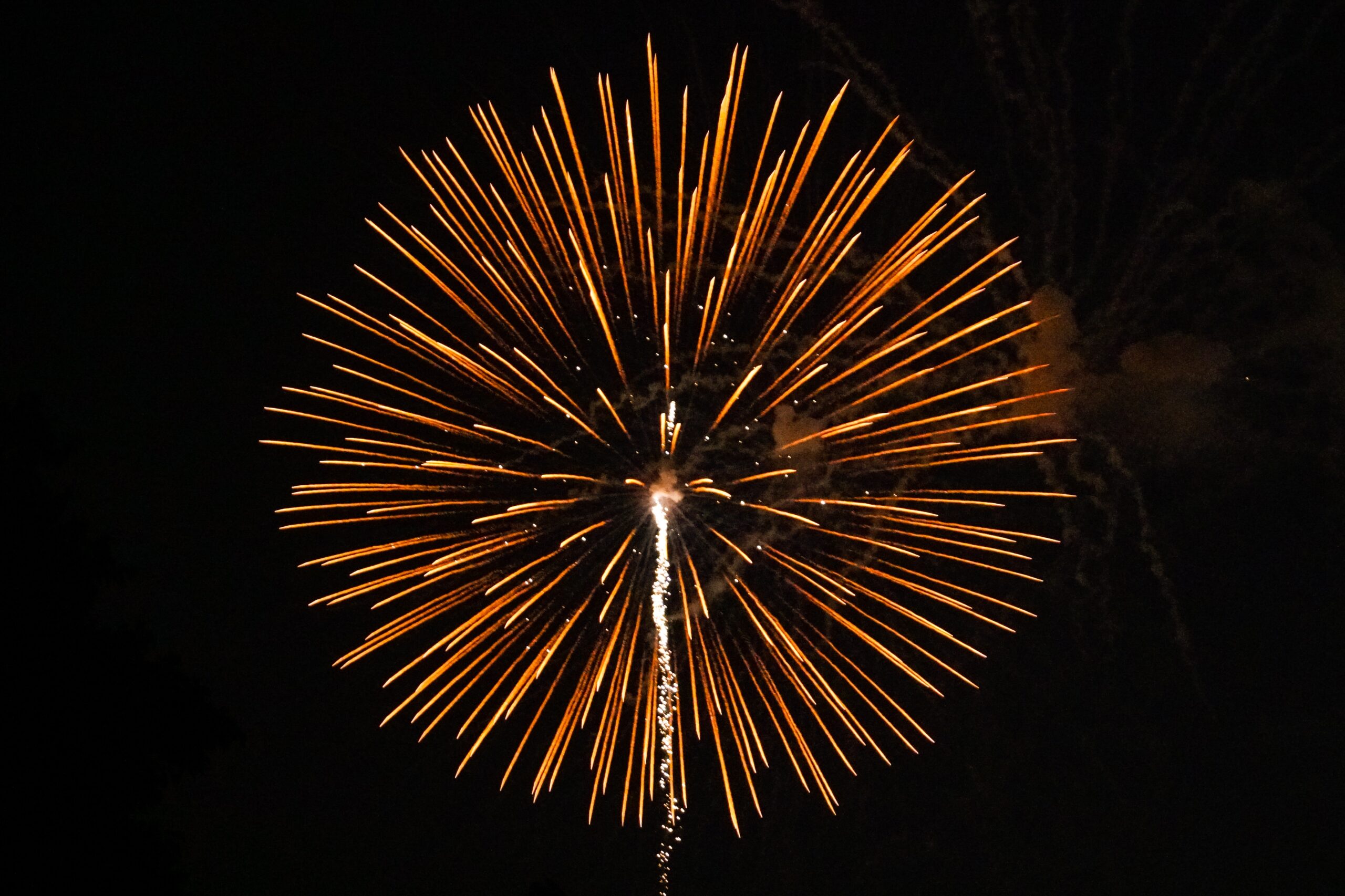South Central Ambulance Service NHS Foundation Trust (SCAS) has teamed up with blue light services colleagues to offer advice on how to stay safe this fireworks season.
With Bonfire Night and Diwali just around the corner, many people will be looking forward to attending organised events or planning their own celebrations at home.
SCAS has joined forces with Hampshire and Isle of Wight Fire and Rescue Service (HIWFRS) and Hampshire and Isle of Wight Constabulary to remind people how they can protect themselves and others from injury.
A burn or injury is for life and the Children’s Burns Trust says around 500 children are taken to A&E each year in the four weeks leading up to 5 November. Sparklers are often seen as a harmless way for young children to join in the fun, but they can reach temperatures of up to 20 times the boiling point of water, so taking precautions is vital.
With the recent severe weather warnings this week, it’s also important to check the latest advice before going ahead with a fireworks display or bonfire. Strong winds could cause fireworks or flying bonfire embers to fall dangerously among spectators. In very windy weather, organisers should consider calling off displays altogether, however disappointing that might be.
Assistant Director of Operations at SCAS, Tracy Redman, said:
“Our 999 service is under significant pressure as we move into the busiest winter months and every year we receive a number of 999 calls to people injured at incidents involving fireworks or bonfires that could, and should have been avoided. This then places more strain on our hardworking teams.
“This year I would urge everyone to enjoy themselves at an organised, professional event which is the safest way to celebrate Bonfire Night and Diwali. If you or someone you’re with does suffer any kind of burn, you can help give them the best chance of making a full recovery by cooling the burn with running water for 20 minutes, call NHS 111 for advice on minor burns (or call 999 only in an emergency) and cover the area with cling film or a sterile, non-fluffy dressing or cloth. Remember: cool, call, cover.”
Head of Prevention at HIWFRS, Karen Farr, said:
“We want to make sure everyone enjoys the festivities safely by reminding people across our communities to have fun but always follow the firework code.
“The safest way to enjoy Bonfire Night and Diwali is by going to organised events and we would always encourage people to enjoy these rather than holding their own celebrations. If you are holding a home display, it’s vital that you make safety your priority.
“Avoid taking unnecessary risks and always follow the manufacturer’s instructions and the firework code to enjoy celebrations safely.
“Please talk to your children about the dangers fireworks pose. Fireworks are explosives and should always be kept away from children and pets, and stored in a dry environment, away from any sources of heat or ignition.”
Chief Inspector Marcus Cator from Hampshire and Isle of Wight Constabulary, said:
“Please support us in ensuring the communities of Hampshire and the Isle of Wight are safe this Bonfire Night. Please help your emergency services by showing respect for your neighbours and those around you, following the firework code and ensuring a safe night. Thank you for your support.”

The Firework Code:
- Only buy fireworks from a licensed seller, keep them in a closed box and use them one at a time
- Read and follow the instructions on each firework, using a torch if necessary
- Light the firework at arm’s length with a taper and stand well back
- Keep naked flames, including cigarettes, away from fireworks
- Never return to a firework once it has been lit
- Don’t put fireworks in pockets and never throw them
- Direct any rocket fireworks well away from spectators
- Never use paraffin or petrol on a bonfire
- Make sure that the fire is out, and surroundings are made safe before leaving
Burns advice:
If you or someone you’re with does suffer a burn:
- Move the casualty away from the fire
- Cool the burn for at least 20 minutes under cold running water. This will help to reduce any pain and swelling
- Once the burn has been cooled, cover it with clean cling film. This helps to reduce the risk of infection and helps to reduce the pain by stopping the cold air getting to the burn
- Do not burst any blisters
- If the burn is bigger that the casualty’s palm or is deep, call 999. You should also call 999 if the burns are on the casualty’s face, hands or feet
- Treatment advice for minor burns can be accessed through the NHS 111 service or through your local urgent treatment centre
Remember, remember… it is illegal:
- To set off fireworks between 11pm and 7am (Bonfire Night is extended until midnight)
- To cause unnecessary suffering to animals with fireworks
- To throw or set off a firework in the street, onto a road or in a public place
- For a member of the public to possess a ‘display’ style firework (category four fireworks)
- To store fireworks for private use for more than 14 days
Severe weather and strong winds:
- A sudden change of wind direction or strength could cause fireworks to fall dangerously among spectators. In very windy weather, organisers should consider calling off displays altogether, however disappointing that might be.
- You should also avoid lighting bonfires during high winds and storms. Excessive rain can dampen down bonfires and fill the area with smoke. Strong winds can also result in flying embers from the bonfire reaching greater distances, causing a risk to spectators.
Find out more about how to celebrate safely:
Ends

